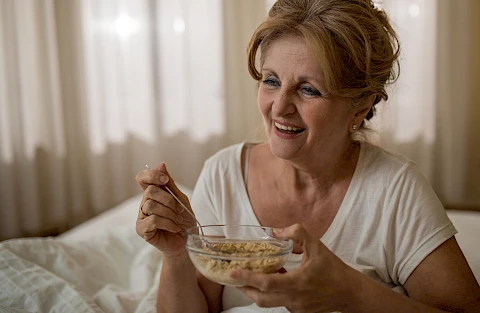
When planning meals for seniors, you need to know more about dietary cholesterol. Dietary cholesterol misconceptions can lead to poor nutritional choices, negatively affecting health. We want to clear up confusion and offer practical advice on managing cholesterol in senior diets.
Common Misconceptions About Dietary Cholesterol
When it comes to dietary cholesterol, myths abound. Many people think that all cholesterol is harmful. However, our bodies need cholesterol for various functions, including building cell membranes and producing hormones. It's also a common belief that eating foods high in cholesterol directly raises your blood cholesterol levels. Recent studies show that dietary cholesterol doesn't have as big an impact on blood cholesterol as once thought. Some think eliminating cholesterol from the diet is the healthiest choice for seniors. Yet, extremely low-cholesterol diets can lead to deficiencies in essential nutrients, which are vital for seniors.
Modern Dietary Science on Cholesterol
To better understand cholesterol, you need to look at modern dietary science. Cholesterol is categorized into LDL (low-density lipoprotein) and HDL (high-density lipoprotein). LDL is often labeled "bad" cholesterol because it can build up in arteries, while HDL is "good" cholesterol that helps remove LDL from the bloodstream.
Cholesterol is not all bad. It's necessary for producing vitamin D, certain hormones, and substances that help digest food. While our liver produces sufficient cholesterol to meet our needs, incorporating dietary cholesterol can improve health.
Cholesterol and Heart Disease in Seniors
High LDL cholesterol levels can lead to plaque buildup in arteries, increasing the risk of heart disease. However, this isn't the whole story. Other factors also contribute to heart disease risk.
Besides cholesterol, factors such as genetics, smoking, high blood pressure, diabetes, and a sedentary lifestyle also play significant roles in heart health. Focusing solely on cholesterol ignores these aspects.
Practical Tips for Managing Cholesterol in Senior Meals
Taking practical steps to manage cholesterol can make a significant difference. Here are some foods to include for healthy cholesterol levels:
- Oats and whole grains: Help lower LDL cholesterol.
- Fatty fish: Rich in omega-3 fatty acids which can reduce LDL levels.
- Fruits and vegetables: High in fiber, which helps lower cholesterol.
Foods to limit or avoid include processed and fried foods, often high in trans fats; red meat and full-fat dairy, which are high in saturated fats; and sugary foods and drinks, which can contribute to higher triglyceride levels.
For caregivers planning meals, consider incorporating lean proteins like chicken or tofu. Use healthy cooking methods like grilling or steaming. Add heart-healthy oils, such as olive oil, instead of butter. Plan meals that include a variety of vegetables, grains, and lean proteins to ensure a balanced diet.
Senior Helpers Stillwater Can Help With Meal Planning and Prep
When you know more about dietary cholesterol, managing senior health is easier. Caregivers should focus on providing balanced meals and encouraging healthy lifestyle choices.
Don't hesitate to contact Senior Helpers Stillwater for personalized senior care services in Stillwater, Bayport, North St. Paul, Forest Lake, and Scandia. Stay informed and always consult healthcare professionals for tailored advice.